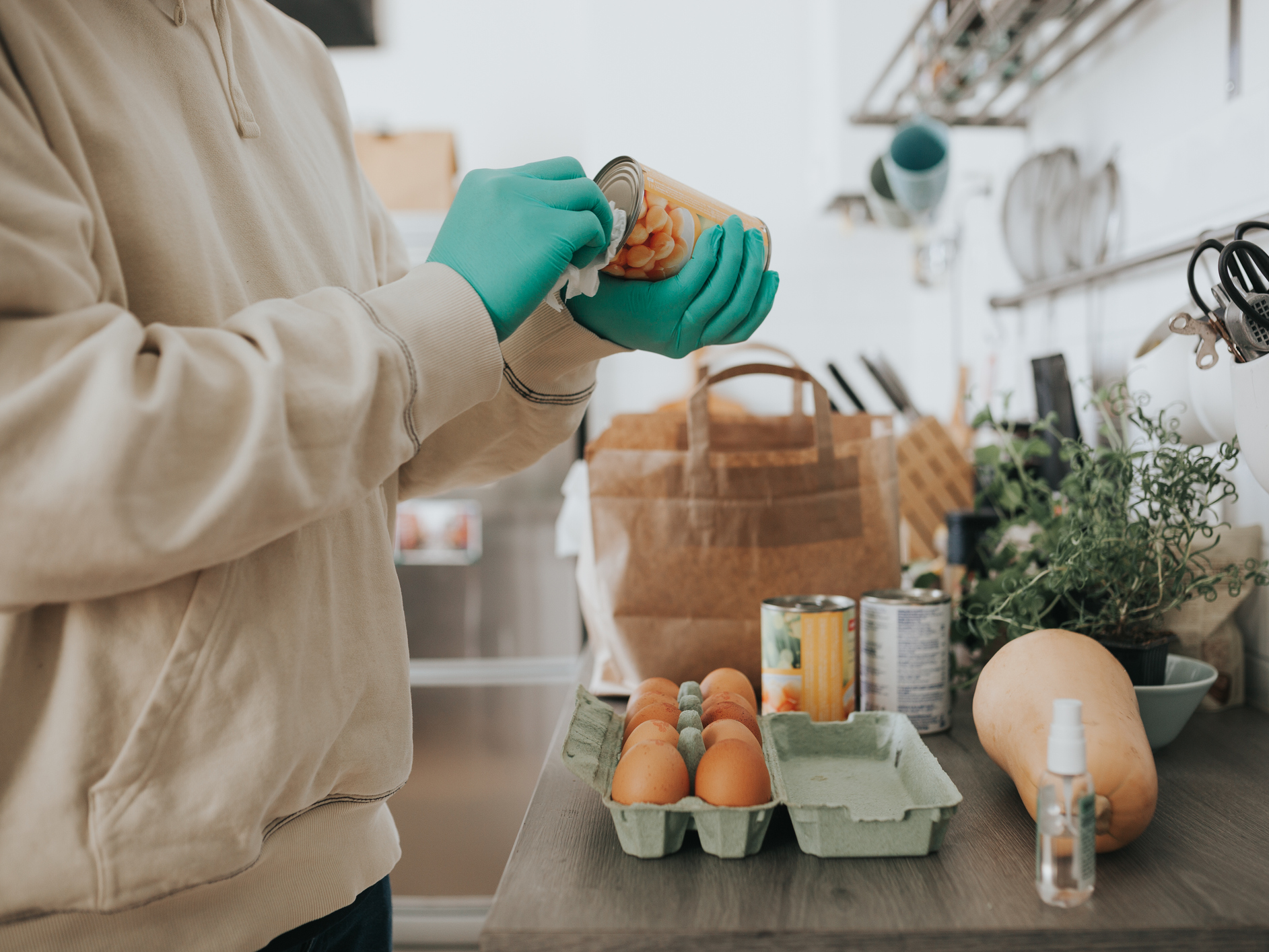- Reports of people accidentally being poisoned with household cleaners have increased sharply since March, according to a new report from the CDC.
- The CDC suggests people may be inadvertently putting themselves in danger while trying to disinfect their homes to avoid contracting the coronavirus.
- One woman was hospitalized after trying to clean her produce with bleach. In another case, a preschooler suffered alcohol poisoning after drinking hand sanitizer, according to the report.
- Cleaning products should be clearly labeled, stored out of reach of children and diluted with water and/or used in a ventilated area for safety. Never mix chemicals, and follow all directions on labels.
- Visit Business Insider’s homepage for more stories.
The best thing you can do to avoid contracting the coronavirus is to keep your hands and surfaces clean.
But some are taking that advice a touch too far, according to the Morbidity and Mortality Weekly Report (MMWR) published by the Centers for Disease Control and Prevention on Monday.
Poisoning control centers have reported a spike in calls related to cleaners and disinfectants in January of this year, when the coronavirus was first reported in the US – up 20% from last year, according to the report.
A total of 45,550 cases of poisoning related to cleaning and disinfectants were reported from January to March, with a large spike in daily calls at the beginning of March.
And these numbers are likely to be an underestimate, since they only account for calls made to poison control centers, and don't include possible unreported cases.
Although there isn't data that this increase is directly linked to coronavirus, the report suggests that may be the case, particularly in the context of widespread shortages of cleaning products as the virus spread across the country.
Bleach was the most likely culprit for poisonings, accounting for 62% of the increase in cases
The most common source of accidentally poisoning was disinfectant, primarily bleach, according to the report.
In one case report, a woman was hospitalized after attempting to wash her produce items in a bleach solution after grocery shopping. She filled the sink with 10% bleach, hot water, and vinegar to soak the produce, and shortly after noticed a "chlorine" smell, and began to have trouble breathing. She called an ambulance and was hospitalized, treated with oxygen, and sent home after a few hours.
Inhalation was the most common source of poisoning, according to the MMWR report - cases of accidental inhalation increased 100% from last year.
Hand sanitizer and other alcohol-based cleaners also pose a risk
The second most common source of poisoning is hand sanitizer. If accidentally consumed, it can cause alcohol poisoning.
In another case report, a preschool-aged child was hospitalized after accidentally drinking from a 64-ounce bottle of hand sanitizer, after which the child became dizzy, fell, and hit her head. An ambulance was called and the child was unresponsive and and vomiting on the way to the hospital, where she was found to have a blood alcohol level of limit .273, over 3 times the legal limit in most states.
The child was found to not have a severe head injury, recovered, and was sent home after 48 hours.
To prevent poisoning, safely store cleaning products, read all directions, and use them in ventilated areas
Safely cleaning your home requires a little precaution and some basic tips. First, don't use harsh chemicals when soap and water will do, Erica Hartmann, assistant professor of civil and environmental engineering at Northwestern University, previously told Insider.
"The same way soap can dissolve grease on dirty pan, it can dissolve the membrane around bacteria and envelop viruses," Hartmann said, including the novel coronavirus.
If you are using bleach or other disinfectants, be sure to use them in a well-ventilated area to prevent inhalation. Follow all the instructions on the label, including diluting products when necessary.
Finally, store your cleaning products in a secure place when they're not in use, and keep them in their original bottles. This can help prevent accidental exposure.
